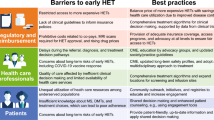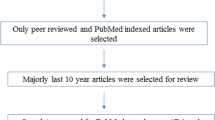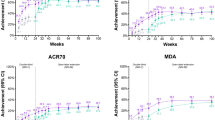Abstract
Background: Relapsing-remitting multiple sclerosis (RRMS) is a chronic disease affecting about 400 000 people in the US characterized by increasing patient disability and burden on society. While there is no cure for multiple sclerosis (MS), pharmaceutical treatments exist that can limit the number of relapses a patient experiences, and slow disease progression. One such class of agents used to treat RRMS are the interferons: interferon-β-1a (Rebif® and Avonex®) and interferon-β-1b (Betaseron® and Extavia®). Patients must take these injectable medications regularly to achieve the optimal outcomes. However, patient issues and potential adverse effects of the medication may prevent the patient from taking the medication as directed and lower adherence. To date, limited evidence exists regarding the effect of patient adherence to interferon-β therapies on clinical and economic outcomes.
Objective: The purpose of this study was to explore the impact of patient adherence to interferon-β therapy on MS relapse rates and healthcare resource utilization.
Methods: Using a non-experimental, retrospective cohort design, a sample population (n= 1606) was drawn from patients identified in a database that includes both pharmacy and medical claims data. The study population was separated into two groups based on a measure of medication possession ratio (MPR)-adherent and non-adherent patients, and adherence was defined as MPR ≥85% in a given year during the study period (2006–8). Key outcome variables included MS relapses and healthcare resource utilization. Data were analysed using parametric and non-parametric statistics, and regression modeling.
Results: During the study period, the average MPR for all patients on interferon-β therapy varied from 72% to 76%. Only 27–41% of patients in each year were considered adherent (i.e. MPR ≥85%) and only 4% of patients had an MPR of ≥85% throughout the 3-year study period (2006–8). Patients who were adherent tended to have a lower risk of relapses over 3 years than non-adherent patients. A significantly lower risk of relapses was found in 2006 (risk ratio [RR] 0.89; 95% CI 0.81, 0.97). Furthermore, an increasingly larger effect emerged between adherence and relapses when comparing adherent patients (MPR ≥85%) with subgroups of non-adherent patients (<80%, <75%, <70%, <65% and <60%). The impact of adherence on emergency room (ER) visits also tended to suggest a lower risk during 2006, 2007 and 2006–8. During 2008, the risk for an ER visit was significantly lower for patients adherent in 2007 (RR 0.78; 95% CI 0.61, 0.99). Inpatient admissions followed the ER trends, as patients considered adherent in 2006 and 2007 tended to have a lower risk over 3 years. This result was significant for patients adherent in 2007 (RR 0.79; 95% CI 0.65, 0.98).
Conclusion: The findings of low patient adherence and the impact of adherence on relapses and healthcare resource utilization strongly suggest opportunities to reduce healthcare resource utilization and healthcare costs among RRMS patients taking interferon-β therapy. Efforts should be undertaken to understand and improve medication-taking behaviour in this population so as to minimize the negative impacts of RRMS on patients while reducing unnecessary direct and indirect costs to treat disease exacerbations.












Similar content being viewed by others
References
Rudick RA, Goodkin DE, editors. Multiple sclerosis therapeutics. London: Martin Dunitz Ltd, 2000
National multiple sclerosis society [online]. Available from URL: http://www.nationalmssociety.org/about-multiple-sclerosis [Accessed 2009 Oct 12]
Goodin DS, Frohman EM, Garmany GP, et al. Disease modifying therapies in multiple sclerosis: report of the Therapeutics and Technology Assessment Subcommittee of the American Academy of Neurology and the MS Council for Clinical Practice Guidelines. Neurology 2002 Jan; 58(2): 169–78
Manfredonia F, Pasquali L, Dardano A, et al. Review of the clinical evidence for interferon B 1a (Rebif) in the treatment of multiple sclerosis. Neuropsychiatr Dis Treat 2008 Apr 4 (2): 321-36
Lublin F, Baier M, Cutter G. Effect of relapses on development of residual deficit in multiple sclerosis. Neurology 2003; 61: 1528–32
Johnson KL, Kuehn CM, Yorkston KM, et al. Patient perspectives on disease-modifying therapy in multiple sclerosis. Int J MS Care 2006; 8: 11–8
Treadway K, Cutter G, Salter A, et al. Factors that influence adherence with disease-modifying therapy in MS. J Neurol 2009 April; 256(4): 568–76
Flachenecker P, Rieckmann P. Early intervention in multiple sclerosis: better outcomes for patient and society? Drugs 2003; 63: 525–33
Comi G. Shifting the paradigm toward earlier treatment of multiple sclerosis with interferon beta. Clin Ther 2009 Jun; 31(6): 1142–57
Jewell S. Issues in adherence: initiating and maintaining patients on immunotherapy. Multiple Sclerosis Pro 2001 [online]. Available from URL: http://www.multiplesclerosispro.com/admin/templates/Template_Nurse_Issues.aspx?artic. [Accessed 2009 Oct 18]
National Institute of Neurological Disorders and Stroke: 2009 [online]. Available from URL: http://www.ninds.nih.gov/disorders/multiplesclerosis/detail_multiple_sclerosis.htm [Accessed 2009 Nov 10]
Kolbelt G, Lindgren P, Smala A, et al. Costs and quality of life in multiple sclerosis: an observational study in Germany. HEPAC 2001; 2: 60–8
Pope GC, Urato CJ, Kulas ED, et al. Prevalence, expenditures, utilization, and payment for persons with MS in insured populations. Neurology 2002; 58: 37–43
Grima DT, Torrance GW, Francis G, et al. Cost and health-related quality of life consequences of multiple sclerosis. Mult Scler 2000; 6(2): 91–8
Miltenburger C, Kobelt G. Quality of life and cost of multiple sclerosis. Clin Neurol Neurosurg 2002; 104(3): 272–5
O’Brien JA, Ward AJ, Patrick AR, et al. Cost of managing an episode of relapse in multiple sclerosis in the United States. BMC Health Serv Res 2003 Sept; 3: 17
Portaccio E, Zipoli V, Siracusa G, et al. Long-term adherence to interferon ß therapy in relapsing-remitting multiple sclerosis. Eur Neurol 2008; 59(3-4): 131–5
Recognizing nonadherence in patients with MS: defining adherence [online]. Available from URL: http://www.medscape.com/view article/579661 3 [Accessed 2009 Aug 2]
Vercellino M, Romagnolo A, Mattioda S, et al. Multiple sclerosis relapses: a multivariable analysis of residual disability determinants. Acta Neurol Scand 2009 Feb; 119(2): 126–30
Klauer T, Zette UK. Compliance, adherence, and the treatment of multiple sclerosis. J Neurol 2008 Dec; 255Suppl. 6: 87–92
Tremlett H, Van der Mei I, Pittas F, et al. Adherence to the immunomodulatory drugs for multiple sclerosis: contrasting factors affect stopping drug and missing doses. Pharmacoepidemiol Drug Saf 2008 Apr; 17(6): 565–76
Zycynski TM, Coyne KS. Hypertension and current issues in compliance and patient outcomes. Curr Hypertens Rep 2000; 2(6): 510–4
Cramer JA, Benedict A, Muszbeck N, et al. The significance of compliance and persistence in the treatment of diabetes, hypertension and dysplipidaemia: a review. Int J Clin Practice 2008 Jan; 62(1): 76–87
Revel M. Interferon-B in the treatment of relapsing-remitting multiple sclerosis. Pharmacol Therap 2003 Oct; 100(1): 49–62
Portaccio E, Amato MP. Improving compliance with interferon-beta therapy in patients with multiple sclerosis. CNS Drugs 2009; 23(6): 453–62
MacLean HJ, Freedman MS. Immunologic therapy for relapsing-remitting multiple sclerosis. Curr Neurol Neurosci Rep 2001 May; 1(3): 277–85
McCormack PL, Scott LJ. Interferon-beta-1b: a review of its use in relapsing-remitting and secondary progressive multiple sclerosis. CNS Drugs 2004; 18(8): 521–46
Grymonpre R, Cheang M, Fraser M, et al. Validity of a prescription claims database to estimate medication adherence in older persons. Med Care 2006 May; 44(5): 471–7
Fairman K, Motheral B. Evaluating medication adherence: which measure is right for your program? J Manag Care Pharm 2000; 6: 499–506
Friedman DS, Quigley HA, Gelb L, et al. Using pharmacy claims data to study adherence to glaucoma medications: methodology and findings of the Glaucoma Adherence and Persistence Study (GAPS). Invest Ophthalmol Vis Sci 2007; 48: 5052–7
Johnson RE, Volmer WM. Comparing sources of drug data about the elderly. J Am Geriatr Soc 1991; 39: 1079–84
Kirking DM, Ammann MA, Harrington CA. Comparison of medical records and prescription claims files in documenting prescription medication therapy. J Pharmaco-epidemiol 1996; 5(1): 3–15
Lau HS, De Boer A, Beuning KS, et al. Validation of pharmacy records in drug exposure assessment. J Clin Epidemiol 1997; 50(5): 619–25
Tamblyn R, Lavoie G, Petrella L, et al. The use of prescription claims databases in pharmacoepidemiological research: the accuracy and comprehensiveness of the prescription claims database in Quebec. J Clin Epidemiol 1995 Aug; 48(8): 999–1009
Sikka R, Xia F, Aubert RE. Estimating medication persistency using administrative claims data. Am J Manag Care 2005 Jul; 7(11): 449–57
Osterberg L, Blaschke T. Adherence to medication. N Eng J Med 2005 Aug; 132: 487–97
Steiner JF, Earnest MA. The language of medication taking. Ann Intern Med 2000; 132: 926–30
Peterson AM, Nau DP, Cramer JA, et al. A checklist for medication compliance and persistence using retrospective databases. Value Health 2007 Jan–Feb; 10(1): 3–12
Ruggieri RM, Settipiani N, Viviano L, et al. Long-term interferon-ß treatment for multiple sclerosis. Neurol Sci 2003 Dec; 24(5): 361–4
Schumacker GA, Beebe G, Kebler RF, et al. Problems of experimental trials of therapy in multiple sclerosis: report by the panel on the evaluation of experimental trials of therapy in multiple sclerosis. Ann NY Acad Sci 1965; 122: 552–68
Goldberg P, Fleming MC, Picard EH. Multiple sclerosis: decreased relapse rate through dietary supplementation with calcium, magnesium, and vitamin D. Med Hypotheses 1986 Oct; 21: 193–200
Buljevac D, Hop WC, Reedeker AC, et al. Self reported stressful life events and exacerbations in multiple sclerosis: prospective study. BMJ 2003; 327: 646–9
Putnam KG, Buist DS, Fishman P, et al. Chronic disease score as a predictor of hospitalization. Epidemiology 2002 May; 13(3): 340–6
Jacobs LD, Cookfair DL, Rudick RA, et al. Intramuscular interferon beta-1a for disease progression in relapsing multiple sclerosis. Ann Neurol 2004 Oct; 39(3): 285–94
Tang J, Faris RJ. Exploring the impact of dispensing channel on medication adherence among multiple sclerosis patients. ISPOR 14th Annual International Meeting; 2009 May 16–20; Orlando (FL)
Garcia DO, Knobel H, Carmona A, et al. Impact of adherence and highly active antiretroviral therapy on survival in HIV-infected patients. J Acquir Immune Defic Syndr 2002; 30(1): 105–10
Brigido LF, Rodrigues R, Casseb J, et al. Impact of adherence to antiretroviral therapy in HIV-1-infected patients at a university public service in Brazil. AIDS Patient Care STDS 2001 Nov; 15(11): 587–93
DeMasi RA, Graham NM, Tolson JM, et al. Correlation between self-reported adherence to highly active antiretroviral therapy (HAART) and virologic outcome. Adv Ther 2001; 18(4): 163–73
Gwadry-Sridhar F, Manias E, Zhang Y, et al. A framework for planning and critiquing medication compliance and persistence research using prospective study designs. Clin Ther 2009 Feb; 31(2): 421–35
Daugherty KK, Butler JS, Mattingly M, et al. Factors leading patients to discontinue multiple sclerosis therapies. J Am Pharm Assoc 2005 May–Jun; 45(3): 371–5
Munschauer FE, Tyree J. Persistency in patient with multiple sclerosis. Paper presented at the Annual Meeting of the Consortium of MS Centers (CMSC) 2004 Jun 4; Toronto (ON)
Tremlett HL, Oger J. Interrupted therapy: stopping and switching of the beta-interferons prescribed for MS. Neurology 2003; 61: 551–4
Kreuger KP, Berger BA, Felkey B. Medication adherence and persistence: a comprehensive review. Adv Ther 2005 Jul–Aug; 22(4): 313–56
Acknowledgements
Funding for this study was provided by Merck-Serono. Richard Faris, Stephanie Steinberg and Mark Tankersley are employed by Accredo Health Group, Inc. Dr Cyril Chang is employed by the University of Memphis, and was retained as a consultant for design, analysis and review of this project. Dr Andrew Chan is the Deputy Head of the Department of Neurology at St Josef-Hospital, Ruhr-University Bochum. Dr Chan has served on advisory boards and has received research support and speakers honoraria from Bayer Schering, Biogen Idec, Merck-Serono, Novartis, Sanofi-Aventis and Teva.
Author information
Authors and Affiliations
Rights and permissions
About this article
Cite this article
Steinberg, S.C., Faris, R.J., Chang, C.F. et al. Impact of Adherence to Interferons in the Treatment of Multiple Sclerosis. Clin. Drug Investig. 30, 89–100 (2010). https://doi.org/10.2165/11533330-000000000-00000
Published:
Issue Date:
DOI: https://doi.org/10.2165/11533330-000000000-00000




